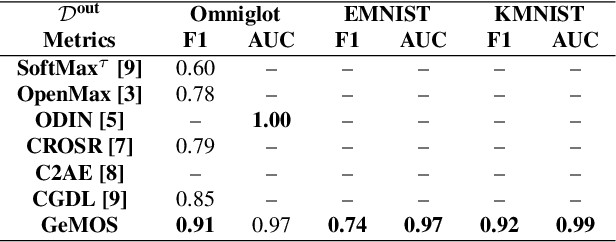Alexei Machado
Do we need more complex representations for structure? A comparison of note duration representation for Music Transformers
Oct 14, 2024



Abstract:In recent years, deep learning has achieved formidable results in creative computing. When it comes to music, one viable model for music generation are Transformer based models. However, while transformers models are popular for music generation, they often rely on annotated structural information. In this work, we inquire if the off-the-shelf Music Transformer models perform just as well on structural similarity metrics using only unannotated MIDI information. We show that a slight tweak to the most common representation yields small but significant improvements. We also advocate that searching for better unannotated musical representations is more cost-effective than producing large amounts of curated and annotated data.
Opening Deep Neural Networks with Generative Models
May 20, 2021



Abstract:Image classification methods are usually trained to perform predictions taking into account a predefined group of known classes. Real-world problems, however, may not allow for a full knowledge of the input and label spaces, making failures in recognition a hazard to deep visual learning. Open set recognition methods are characterized by the ability to correctly identifying inputs of known and unknown classes. In this context, we propose GeMOS: simple and plug-and-play open set recognition modules that can be attached to pretrained Deep Neural Networks for visual recognition. The GeMOS framework pairs pre-trained Convolutional Neural Networks with generative models for open set recognition to extract open set scores for each sample, allowing for failure recognition in object recognition tasks. We conduct a thorough evaluation of the proposed method in comparison with state-of-the-art open set algorithms, finding that GeMOS either outperforms or is statistically indistinguishable from more complex and costly models.
 Add to Chrome
Add to Chrome Add to Firefox
Add to Firefox Add to Edge
Add to Edge